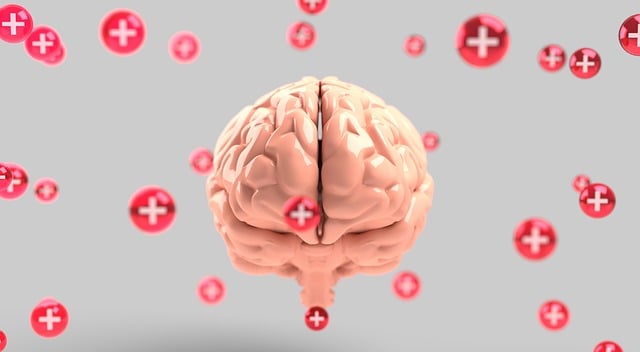Englewood Exposure and Response Prevention (EERP) Therapy is an evidence-based approach for managing anxiety disorders, OCD, and enhancing coping skills. By gradually exposing clients to feared situations, therapists help individuals challenge unhelpful thoughts, reduce avoidance behaviors, and develop healthier response habits. This process, which includes stress management techniques and trauma support, enhances emotional well-being, rewire brain responses, and builds resilience over time. Mental health education programs should incorporate EERP to equip professionals with these powerful tools for promoting patient emotional growth and recovery.
Coping skills development is a vital process for navigating life’s challenges. This article explores effective strategies, focusing on Engagement and Exposure and Response Prevention (ERP) therapy. We’ll delve into how ERP helps individuals understand and manage anxiety triggers. Additionally, we’ll uncover the significance of identifying personal coping mechanisms, facing fears, building resilience, and finding support in a journey towards emotional well-being. By implementing these techniques, readers can empower themselves to lead more fulfilling lives.
- Understanding Exposure and Response Prevention Therapy (ERP)
- The Role of Englewood in Coping Skills Development
- Identifying Personal Triggers and Coping Mechanisms
- Strategies for Facing Fears and Changing Responses
- Building Resilience Through Practice and Support
Understanding Exposure and Response Prevention Therapy (ERP)

Exposure and Response Prevention (ERP) Therapy is a highly effective approach to coping skills development, particularly for individuals navigating anxiety disorders or obsessive-compulsive disorder (OCD). This therapy technique encourages individuals to confront their fears in a safe, controlled environment, gradually reducing avoidance behaviors. By facing their anxieties, clients learn to manage and regulate their responses, fostering inner strength and resilience.
Englewood Exposure and Response Prevention Therapy focuses on helping individuals understand the connection between their thoughts, feelings, and behaviors. Through a series of structured exposures, clients are guided to challenge unhelpful beliefs and reduce the urge to engage in avoidance or safety-seeking behaviors. This process not only alleviates symptoms but also promotes self-esteem improvement by empowering individuals to take control of their mental health journey. Additionally, ERP therapy contributes to Mental Illness Stigma Reduction Efforts by fostering a deeper understanding of anxiety disorders and encouraging positive self-perception.
The Role of Englewood in Coping Skills Development

Englewood Exposure and Response Prevention (EERP) Therapy plays a pivotal role in coping skills development by empowering individuals to confront and overcome their fears and anxieties. This therapeutic approach gradually exposes clients to stressful situations or triggers, allowing them to learn and practice healthier responses. Through EERP, mental health professionals can help individuals develop effective coping strategies that promote emotional well-being.
In the context of risk management planning for mental health professionals, understanding EERP is crucial. By integrating this therapy into their practice, professionals can enhance their ability to support clients in managing challenging situations. Mental health education programs design should incorporate evidence-based techniques like EERP to equip future therapists with a robust toolkit for promoting emotional well-being among their patients.
Identifying Personal Triggers and Coping Mechanisms

Identifying personal triggers is a crucial step in developing effective coping skills. This process involves becoming attuned to the unique situations or emotions that set off distressing responses. For instance, someone with social anxiety might realize that public speaking engagements trigger feelings of panic and self-doubt. Once these triggers are recognized, individuals can begin to explore their underlying thoughts and beliefs associated with these events. Understanding the connection between specific triggers and subsequent emotional reactions is a fundamental aspect of coping skill development.
Englewood Exposure and Response Prevention Therapy (ERPT) offers a structured approach to this process. ERPT encourages clients to gradually face their fears or distressing situations, while simultaneously learning new communication strategies and stress management techniques. By consistently applying these coping mechanisms in the face of triggers, individuals can rewire their emotional responses over time. This transformative process equips people with powerful tools for navigating life’s challenges, ultimately enhancing their resilience and overall well-being, and supporting them in accessing available trauma support services as needed.
Strategies for Facing Fears and Changing Responses

Fearing what’s unknown is a common obstacle to personal growth, but overcoming these fears can be life-changing. One effective approach is Exposure and Response Prevention (ERP) Therapy, which has gained prominence in coping skills development. This therapy involves gradually exposing individuals to their feared situations or objects, while teaching them new, healthier response habits. By facing their fears in a controlled environment, people can learn to manage their anxiety and change their reactions over time.
Englewood, as a therapeutic setting, offers the perfect environment for this process. Through ERP, clients develop inner strength by confronting their anxieties. This can include various stress reduction methods tailored to individual needs. By repeatedly exposing themselves to feared stimuli without experiencing harm, individuals rewire their brains’ responses, leading to significant improvements in their ability to cope with challenging situations and enhance overall well-being.
Building Resilience Through Practice and Support

Building resilience is a skill that can be cultivated over time through practice and support. Exposure and Response Prevention (ERP) Therapy, such as that offered in Englewood, plays a pivotal role in this process. By gradually exposing individuals to stressful situations and helping them learn new coping strategies, ERP enables people to face challenges with greater ease and confidence. This therapy empowers individuals to change their response patterns, thereby fostering resilience.
The integration of Compassion Cultivation Practices can significantly enhance the emotional healing processes involved. Boosting one’s confidence in navigating difficult scenarios is another facet of developing effective coping skills. Through consistent practice and a supportive environment, individuals can build mental fortitude, enabling them to persevere through life’s ups and downs with enhanced resilience.
Coping skills development is a transformative process that empowers individuals to navigate life’s challenges with resilience. By integrating strategies from Engagement, understanding ERP principles, recognizing personal triggers, and adopting effective responses, one can forge a path towards emotional well-being. Regular practice and supportive networks play a pivotal role in building resilience, enabling individuals to confront fears and embrace positive change. Through these comprehensive approaches, individuals armed with coping skills become better equipped to handle stress, anxiety, and various life obstacles, ultimately enhancing their overall quality of life.













